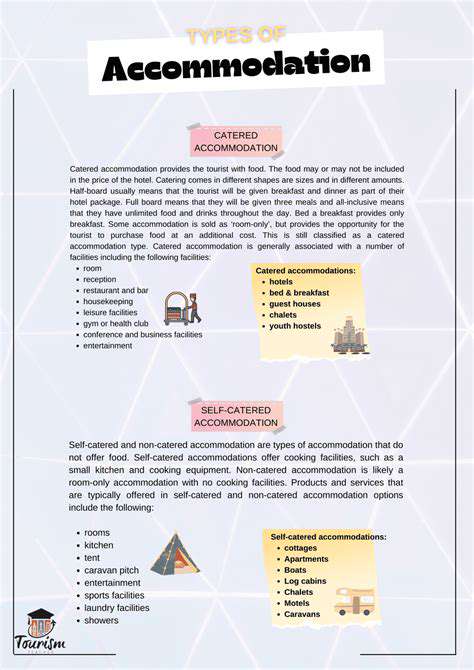Guide to Tipping Customs Around the World

Tipping Etiquette and Culture
Tipping in the United States is a deeply ingrained cultural practice, often viewed as a crucial component of service industry compensation. While the precise amount and circumstances surrounding tipping can vary, understanding the general expectations and nuances of this practice is essential for navigating social interactions and ensuring a positive experience for both the customer and the service provider. Tipping is often seen as a way to reward exceptional service, but it's also a significant portion of income for many service workers. It's important to remember that a fair tip reflects the quality of service rendered.
There's a significant debate about whether tipping is an equitable system, with some arguing it creates a two-tiered system where service quality is directly correlated to income. Others argue it allows for flexibility in compensation, allowing for the adjustment of payment based on individual service. Regardless of the perspective, it's essential to understand that tipping is a fundamental aspect of dining and service industries in the US, and its impact on both customers and employees is significant. Understanding the expectations and guidelines surrounding tipping can lead to a more satisfying and harmonious experience for everyone involved.
Factors Influencing Tip Amounts
Several factors influence the amount of tip a service provider receives. Restaurant service, for example, often relies on a percentage-based tipping system, with the expected tip amount varying depending on the level of service received. From attentive waitstaff to efficient bartenders, the quality and speed of service are key elements in determining a suitable tip. The overall experience, including the atmosphere of the establishment, plays a role in shaping the customer's perception of the service.
The cost of the meal itself is a crucial factor in determining the tip amount. A higher bill generally warrants a larger tip, although this isn't always a straightforward calculation. It's important to consider the value received, rather than simply calculating a percentage of the total bill. The service provided should be the primary determinant of the tip, with the total bill serving as a frame of reference. In addition, the level of satisfaction with the service, including any special requests or accommodations, will also influence the tip amount.
Situations such as large parties, special occasions, or situations involving a large number of people also contribute to the overall tipping experience. The presence of multiple servers, for instance, may impact the way tips are distributed, and it's important to be aware of these nuances when deciding on the tip amount. The specific circumstances of each encounter will influence the appropriate amount of the tip.
Tipping in Asia: Respecting Local Traditions

Understanding the Cultural Nuance
Tipping customs in Asia vary significantly from those in Western countries, often reflecting a different approach to service and interpersonal relationships. Understanding these nuances is key to showing respect and avoiding any unintended offense. Many Asian cultures prioritize a sense of shared responsibility and collective well-being, where the expectation of gratuity might not be as explicitly stated. This doesn't mean that tipping isn't appreciated, but rather that it's often embedded within the broader experience of hospitality.
Observing how locals interact and treat each other, as well as the service staff, can be incredibly insightful. Paying attention to the general atmosphere and the way transactions are handled can provide a valuable guide. This approach fosters a deeper understanding of the local culture and helps you contribute positively to the overall experience. Often, a simple thank you or a genuine expression of appreciation can go a long way in demonstrating respect and conveying gratitude.
Specific Considerations for Tipping
In some Asian countries, tipping might be expected in restaurants, particularly for higher-end establishments, but it's often not as pervasive as it is in Western nations. Even in those cases, the amount might be significantly lower. Many establishments in these areas include service charges in the bill, so it's important to carefully review the receipt or inquire if there are any additional charges before paying.
For example, in some Southeast Asian countries, a small tip for exceptional service is often appreciated, but it's not mandatory. It's always best to err on the side of caution and offer a small tip if you feel the service has been exceptional. However, if you're uncertain about the expected custom, it's always polite to observe how others are handling the situation.
Taxi drivers and other transportation services in Asia often don't expect tips, although a small amount (e.g., a few dollars) is sometimes appreciated. It's important to be mindful of the local currency and avoid offering more than what is generally considered appropriate.
In general, showing respect for local customs and traditions is crucial. This includes being mindful of tipping practices and adjusting your behavior accordingly. A thoughtful gesture, such as a sincere thank you, can go a long way in building positive relationships and fostering a respectful exchange.
Hotels often have a service charge included in the room rate, but a small tip for exceptional service is always appreciated.
Tipping in Africa: Understanding Diverse Customs
Understanding the Cultural Context of Tipping
Tipping customs in Africa, like those globally, are deeply rooted in cultural norms and societal expectations. It's crucial to approach tipping with sensitivity and awareness of the specific context. While a gesture of appreciation in some cultures, tipping in others might be viewed as an obligation or even an insult. Understanding the nuances of these customs is essential for respectful interaction and avoids any potential misunderstandings.
Different countries and even regions within a country may have varying expectations. Researching the local customs before your trip is a great way to be prepared and show respect for the local culture. This will help you avoid unwanted or inappropriate tipping situations.
Tipping in Formal Settings
In formal settings such as restaurants and hotels, tipping practices often mirror those in other parts of the world. Generally, a 10-15% tip is considered appropriate. However, it's always good to check the bill for any pre-added service charges or if there are specific tipping guidelines in the establishment.
Informal Settings and Street Vendors
Tipping in informal settings, like street markets or with street vendors, can vary significantly. Often, a small tip, perhaps a few dollars or the equivalent in local currency, can be an appreciated gesture of gratitude. This demonstrates respect for the hard work and service provided by these individuals and supports their livelihoods.
Transportation Tipping
Tipping practices for transportation, including taxis, ride-sharing services, and local transport, are often flexible and depend heavily on the specific country and region. In some instances, a small tip might be expected. In other cultures, it is not expected or even unwelcome, so it's best to observe local customs and behaviors.
For instance, in some countries, a small tip might be customary for drivers, while others prefer a fixed fare system. It's always wise to inquire about local customs before offering a tip.
Tipping for Guides and Tour Operators
For guided tours and excursions, tipping is often expected and appreciated. A reasonable tip, typically 10-20% of the tour price, shows your appreciation for the guide's knowledge and expertise.
Tips for guides can significantly contribute to their livelihood, particularly in countries where formal salaries might be lower.
Service Staff in Hotels and Accommodations
Hotels and accommodations often have established tipping practices. A small tip for housekeeping staff, or for other service personnel, can be a thoughtful gesture. Generally, a small tip for housekeeping, for example, is appreciated and is a way to show your gratitude.
Tips can be left in the room or directly handed to the service staff, ensuring that the tip reaches the intended recipients.
Factors Influencing Tipping Practices
Several factors can influence tipping customs in Africa, including the country's economic situation, the specific region, and the type of service provided. It's essential to be mindful of these differences and to adapt your tipping practices accordingly. Observing the local customs and behavior will help you to understand the appropriate tipping practices for a specific situation.
For example, in areas with lower average incomes, a smaller tip might be more appropriate than in wealthier areas. By being attentive and respectful, you can ensure that your tipping practices are both appreciated and respectful of the local culture.





![How to Find Cheap Flights: My Proven Hacks [2025]](/static/images/27/2025-05/BeyondtheBasics3AStrategiesforSavingEvenMore.jpg)
![The Ultimate Packing List for Any Trip [Printable]](/static/images/27/2025-05/ToiletriesandMedications.jpg)



![Guide to Visa Requirements for New Zealand [2025]](/static/images/27/2025-07/RecentChanges26UpdatestoVisaPolicies28202529.jpg)
